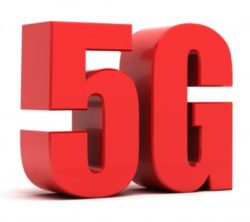State Senator Curt Friesen of Henderson proposed Legislative Bill 184 to expedite the deployment of 5G for Omaha and Lincoln, Nebraska, according to the Omaha World-Herald. The bill will make the approval process and installation for small cell wireless antennas faster.
According to Friesen, “Nebraska is losing ground to other states and cities” when it comes to being ready for 5G.
Wireless internet firms and Friesen agree that the slow deployment of small cell wireless in the state is due to the high fees cities charge to have small cell boxes installed on existing light poles, and slow approval processes. Friesen said Lincoln currently charges $2,000 per pole even though the FCC recommends fees to be $270 per pole at the highest.
Those in favor of LB 184 say wireless companies will benefit from it by having more reasonable fees and faster approvals provided by cities. Friesen says the bill will create more competition for the cable industry, but said it is unfair to keep people from high-speed internet by over-regulating the technology.
According to the World-Herald, the bill was discussed during a three-hour public hearing in the Nebraska Legislature on February 4, along with other state laws that govern small cell antenna installation. The current laws require local communities to be informed of small-cell antenna installations in order to negotiate them, and for a mutually agreed upon right-of-way fee to be paid.
Representatives of Lincoln, Omaha, Papillion, Grand Island, and the League of Nebraska Municipalities do not support the bill, and they agree that the current process of having cities determine their own regulations and fees works well. Lash Chaffin of the municipalities organization said, “The premise that you need this law to deploy small cell wireless is a false narrative.”
Officials in Nebraska and cable companies said the installation of small cell antennas is moving forward efficiently, and they believe LB 184 would give wireless firms too much of a financial advantage over cable companies due to franchise and occupation fees that cable companies must pay.
David Young of the City of Lincoln explained the city’s $2,000-per-pole installation fee. Young said it requires 12 small cell antennas to achieve the same coverage as one cell phone tower, so the installation fee is only one-twelfth of the fee for one cell tower. Attorney for the City of Omaha, Alan Thelen, said LB 184 would cause traffic signals in Omaha to be compromised due to the installation of small cell antennas on traffic signal poles.
A member of the Papillion City Council, Tom Mumgaard, said the city would not be able to stop the installation of boxes up to 28 cubic feet on each pole. The Legislature’s Transportation and Telecommunications Committee took no action on LB 184 after the hearing. According to Friesen, the bill is expected to pass this year. Twenty other states have passed similar legislature, and Friesen says the technology is progressing faster in those states.
February 6, 2019





Reader Interactions